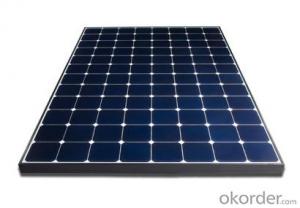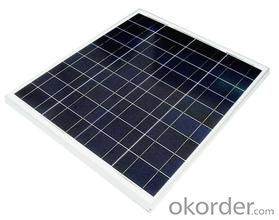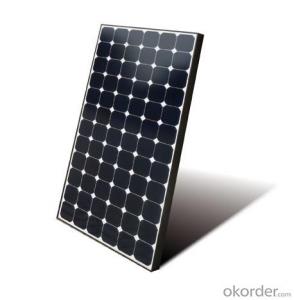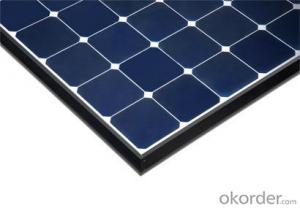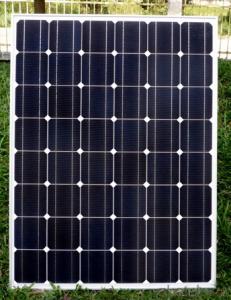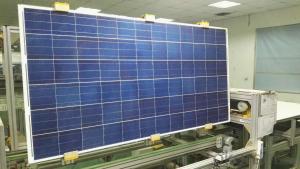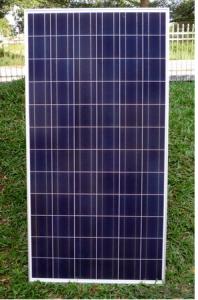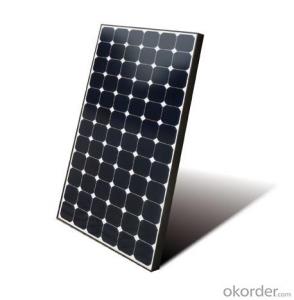Sunshine Solar Energy Systems CNBM Poly 1000W Off Grid Solar System with 10 Years Warranty
- Loading Port:
- Shanghai
- Payment Terms:
- TT OR LC
- Min Order Qty:
- 100 watt
- Supply Capability:
- 1000 watt/month
OKorder Service Pledge
OKorder Financial Service
You Might Also Like
Specification
CNBM Poly 1000W Off Grid Solar Sytem with 10 Years Warranty
Product description
Off-the-grid is a system and lifestyle[1] designed to help people function without the support of remote infrastructure, such as anelectrical grid. In electricity, off-grid can be stand-alone power system or mini-grids typically to provide a smaller community with electricity. Off-grid electrification is an approach to access electricity used in countries and areas with little access to electricity, due to scattered or distant population. The term off-the-grid (OTG) can refer to living in a self-sufficient manner without reliance on one or more public utilities. People who adopt this lifestyle are called off-gridders.[2]
The photovoltaic off-grid market has been researched by international institutes, universities and market research companies. The cumulative installed PV capacity is estimated in 2010 between 1 and 2 GW[16] depending on the source. The market research company Infinergia has gone further by mapping national cumulative installed off-grid PV capacity on 100 countries worldwide.[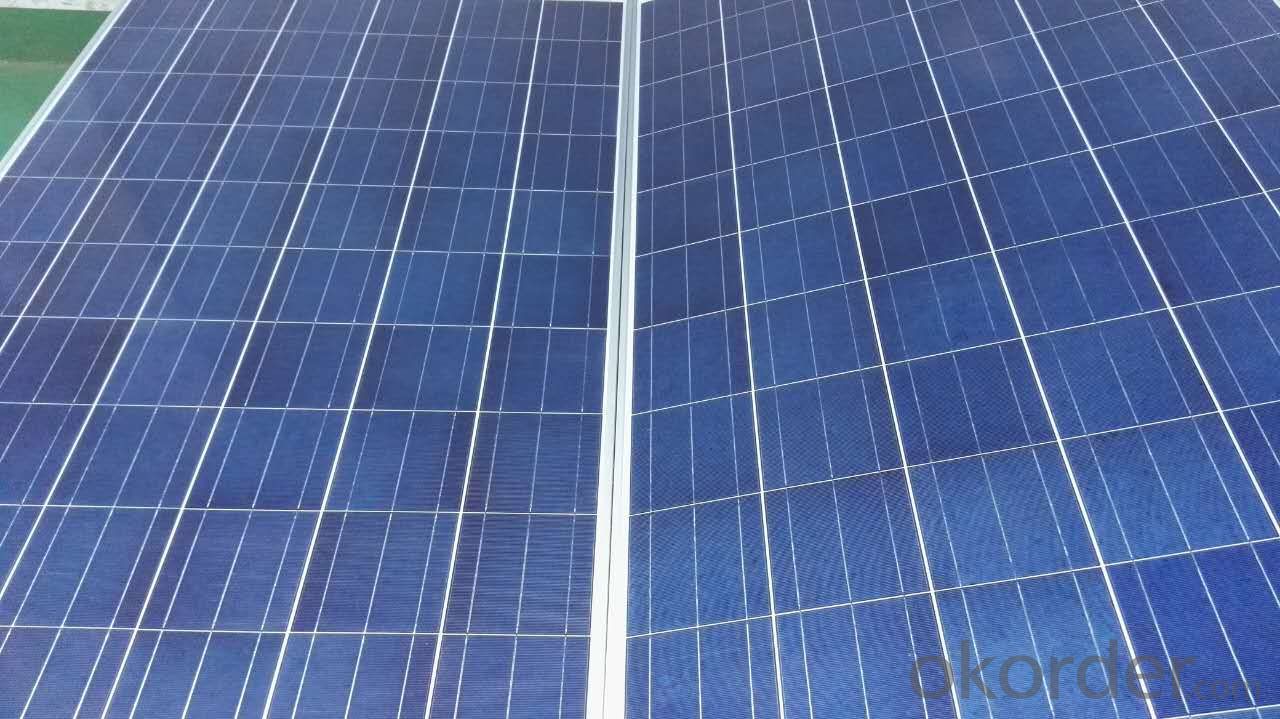
Application
Residential
Commercial
Industrial
Feature
Off-the-grid homes are autonomous; they do not rely on municipal water supply, sewer, natural gas, electrical power grid, or similar utility services. A true off-grid house is able to operate completely independently of all traditional public utility services. The idea has been recently popularized by certain celebrities including Ed Begley, Jr.[3] who stars in the Living with Ed[4] television show on the Home & Garden Television (HGTV) network. Actress Daryl Hannah promotes off-grid living and constructed her home in Colorado according to those principles, as does survival expert and Dual Survival co-star Cody Lundin,[5] who lives in a self-designed, passive solar earth house in the high-desert wilderness of Northern Arizona, collecting rainwater, composting waste, and paying nothing for utilities.[6][7]
Packaging
With carton and box
- Q: What is the role of solar energy systems in promoting energy independence?
- Solar energy systems play a crucial role in promoting energy independence by providing a reliable and renewable source of power. By harnessing the sun's energy, these systems reduce our dependence on fossil fuels and foreign energy sources. They allow individuals, communities, and even entire countries to generate their own electricity, reducing the need for traditional power grids and increasing self-sufficiency. Solar energy systems empower individuals to take control of their energy consumption and contribute to a more sustainable and independent future.
- Q: Are there any risks of electromagnetic radiation with solar energy systems?
- Yes, there are potential risks of electromagnetic radiation associated with solar energy systems. Solar energy systems use photovoltaic (PV) panels to convert sunlight into electricity. These panels generate direct current (DC) electricity, which is then converted into alternating current (AC) electricity for use in our homes and businesses. One potential source of electromagnetic radiation is the inverter, which is responsible for converting DC electricity into AC electricity. In some cases, these inverters can produce electromagnetic fields (EMFs) that may emit low-frequency radiation. While these EMFs are generally considered to be low and within acceptable limits, there is ongoing research to better understand any potential health effects associated with long-term exposure to these fields. Another potential risk is the presence of high-frequency electromagnetic radiation from radio frequency (RF) communication devices, such as wireless monitoring systems or communication modules used in solar energy systems. These devices transmit and receive signals wirelessly, and there is some concern about the potential health effects of long-term exposure to RF radiation. However, the power levels of these devices are generally low, and they are designed to comply with safety standards and regulations. It is important to note that the risks associated with electromagnetic radiation from solar energy systems are generally considered to be low compared to other sources of electromagnetic radiation in our everyday lives, such as cell phones, Wi-Fi routers, or power lines. Nonetheless, it is always recommended to follow safety guidelines provided by manufacturers and industry standards to minimize any potential risks.
- Q: Can solar energy systems be used in powering community centers or social organizations?
- Yes, solar energy systems can definitely be used in powering community centers or social organizations. Solar energy is a clean and renewable source of power that can provide electricity for various purposes, including lighting, heating, and running electrical appliances. Community centers and social organizations often require a significant amount of electricity to cater to the needs of their members or visitors. By installing solar panels on their rooftops or in nearby open spaces, these organizations can generate their own electricity and reduce their dependence on the traditional power grid. One of the key advantages of using solar energy systems is the cost savings they offer in the long run. While the initial installation costs may be higher compared to conventional power sources, solar panels have a lifespan of 25-30 years and require minimal maintenance. This means that over time, the investment made in solar energy systems can be recovered through reduced electricity bills. Moreover, solar energy systems are environmentally friendly, as they produce zero greenhouse gas emissions during operation. By utilizing solar power, community centers and social organizations can contribute to mitigating climate change and reducing their carbon footprint. Solar energy systems can also provide a reliable source of electricity, especially in areas where power outages are common. By integrating battery storage systems, excess solar energy can be stored and used during periods of low or no sunlight, ensuring uninterrupted power supply to the community center or social organization. Furthermore, solar energy systems can be an educational tool for social organizations to raise awareness about renewable energy and sustainability. By demonstrating the benefits and feasibility of solar power, these organizations can inspire community members to consider adopting clean energy solutions in their own homes and businesses. In conclusion, solar energy systems are a viable and sustainable option for powering community centers or social organizations. They offer cost savings, environmental benefits, reliability, and educational opportunities. By embracing solar power, these organizations can lead by example and contribute to a more sustainable future.
- Q: Can solar energy systems be used for desalination of water?
- Yes, solar energy systems can be used for the desalination of water. Solar-powered desalination systems harness the energy from the sun to power the desalination process, which removes salt and impurities from seawater or brackish water, making it suitable for various applications such as drinking, irrigation, or industrial use. These systems typically utilize solar panels to generate electricity, which then powers the desalination equipment, such as reverse osmosis membranes or solar stills, to separate freshwater from saltwater. This sustainable and renewable approach offers a promising solution for addressing water scarcity issues in regions with ample sunlight and limited freshwater resources.
- Q: Can solar energy systems be used in powering retirement homes or assisted living facilities?
- Yes, solar energy systems can definitely be used to power retirement homes or assisted living facilities. Solar panels can be installed on the roofs or in open spaces of these facilities to capture sunlight and convert it into electricity. This renewable energy can then be used to power various amenities such as lighting, heating, cooling, and appliances, reducing their reliance on traditional power sources and lowering energy costs. Additionally, solar energy systems are environmentally friendly and sustainable, aligning with the growing trend of integrating green solutions in retirement homes and assisted living facilities.
- Q: Can solar energy systems be used for heating and cooling homes?
- Yes, solar energy systems can be used for heating and cooling homes. Solar energy can be harnessed through the use of solar panels or solar water heaters to generate electricity or heat. This energy can then be used to power heating and cooling systems in homes. For heating, solar energy can be used in various ways. Solar thermal systems can be installed to heat water for radiant floor heating or to generate steam for heating. Solar air heating systems can also be used to heat air, which can then be distributed throughout the home using ductwork and fans. Additionally, solar heat pumps can be utilized to transfer heat from the sun into the home. Similarly, solar energy can be utilized for cooling homes. Solar-powered air conditioning systems can be employed, which use solar energy to drive the compressors and fans needed for cooling. These systems can be especially effective in hot climates where the availability of sunlight aligns with the need for cooling. In both heating and cooling applications, the use of solar energy systems offers several advantages. It is a clean, renewable source of energy, reducing the reliance on fossil fuels and minimizing carbon emissions. Solar energy systems also provide long-term cost savings, as they reduce or eliminate the need for traditional heating and cooling methods that rely on grid electricity or fossil fuels. Additionally, solar energy systems can be integrated into existing homes or incorporated into new construction, making them a versatile and sustainable option for heating and cooling homes.
- Q: Can solar energy systems be used during power outages?
- Yes, solar energy systems can be used during power outages. However, it depends on the type of solar energy system being used. Grid-tied solar systems without battery storage are designed to shut down during power outages to prevent electricity from being fed back into the grid and endangering utility workers. On the other hand, solar energy systems with battery storage, commonly known as solar-plus-storage systems, can provide electricity during power outages by utilizing the energy stored in the batteries.
- Q: How does the performance of solar panels degrade over time?
- Solar panels degrade over time for various reasons. The primary cause of degradation is the natural wear and tear that occurs as environmental elements, such as sunlight, temperature fluctuations, and weather conditions, impact the panels. These factors gradually break down the materials used in the panels, resulting in decreased efficiency. Another factor contributing to degradation is known as "light-induced degradation" or "LID." During the initial period after installation, the efficiency of the panels can decrease by up to 2-3%. This is due to the interaction between sunlight and boron-oxygen defects within the silicon used in the panels. However, this degradation stabilizes after a few months. Furthermore, the accumulation of dirt, dust, and debris on the panel surface also affects performance. This build-up reduces the amount of sunlight reaching the solar cells, thus reducing efficiency. Regular cleaning and maintenance are necessary to address this issue. Apart from physical factors, electrical factors can also lead to decreased performance over time. The electrical connections within the panels may loosen or corrode, resulting in reduced efficiency. Regular inspections and maintenance are crucial to detect and resolve any electrical issues. It is essential to note that despite degradation, solar panels are designed to have a long lifespan. Most manufacturers offer warranties for 25 years or more, ensuring efficient electricity generation throughout their lifetime. Regular maintenance, cleaning, and monitoring can minimize degradation and ensure optimal performance for many years.
- Q: How do solar energy systems contribute to energy independence?
- Solar energy systems contribute to energy independence by harnessing the power of the sun to generate electricity, reducing the reliance on fossil fuels. By utilizing solar energy, individuals and communities can generate their own clean and renewable energy, reducing their dependence on traditional energy sources. This not only helps to decrease carbon emissions and combat climate change but also provides a reliable and sustainable energy source, promoting energy independence and resilience.
- Q: Can solar energy systems be used for powering industrial processes?
- Yes, solar energy systems can be used effectively to power industrial processes. With advancements in technology, solar panels can generate sufficient electricity to meet the energy demands of various industrial operations. By installing solar panels and utilizing solar power, industries can significantly reduce their reliance on fossil fuels, decrease carbon emissions, and achieve long-term cost savings. Additionally, solar energy systems can be integrated with energy storage solutions to ensure continuous power supply even during non-sunny periods, making it a reliable and sustainable option for powering industrial processes.
Send your message to us
Sunshine Solar Energy Systems CNBM Poly 1000W Off Grid Solar System with 10 Years Warranty
- Loading Port:
- Shanghai
- Payment Terms:
- TT OR LC
- Min Order Qty:
- 100 watt
- Supply Capability:
- 1000 watt/month
OKorder Service Pledge
OKorder Financial Service
Similar products
Hot products
Hot Searches
Related keywords
